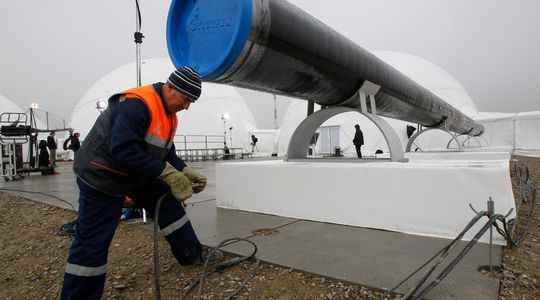“We are the first state in the European Union with Gazprom as a supplier to become independent of Russian gas supply,” Lithuanian Ecology Minister Dainius Kreyvis said on Saturday April 2. Gazprom’s demand to be paid in rubles and the discovery of abuses committed by Russian troops against Ukrainian civilians have finally convinced the Lithuanian government, which is 42% dependent on neighboring gas. In the process, the other Baltic countries, Latvia and Estonia, adopted the same resolution. A courageous decision since, according to the Eurostat agency, these two countries are respectively 100% and 93% dependent on russian energy.
New gas capacities under development
In order to reassure the population, the CEO of the Latvian gas storage company, Conexus Baltic Grid, declared that the country was ready to “sever the energy links with the aggressor without difficulty due to political decisions taken for several years. “. It refers to a reserve of gas stored under Latvian soil corresponding to 7.6 terawatt hours, equivalent to what the country consumes in winter. A short-term solution therefore, to be added to the activity of the Lithuanian liquefied gas terminal in Klaipeda, which can in theory ensure the supply of the three Baltic countries. In theory only, because the terminal can never operate at 100% capacity.
Alternative solutions must therefore be found, such as the construction of a second regional LNG carrier and the inauguration next May of a gas pipeline linking Lithuania and Poland. Countries without gas but not without ideas, which invite their European partners to take the same decisionbecause as Lithuanian President Gitanas Nauseda wrote in a tweet: “If we can do it, so can the rest of Europe.”
If the EU would hold the shock, Germany brakes
Eager to adopt new sanctions against Russia, the countries of the European Union are considering attacking the energy sector. An embargo on imports would have “a relatively small impact” on European economies, with an estimated loss of GDP between 0.2 and 0.3% on average, according to a report by the Economic Analysis Council, which advises the French government. . Nevertheless, some countries would need “European solidarity”, such as Finland, the Czech Republic or Slovakia.
Germany, 66% dependent on Russian gas and hostile to the adoption of this sanction, considers, through the voice of its Minister of Finance, that “Russian gas supplies are not substitutable in the short term”, before d announced that it had temporarily taken control of the Gazprom subsidiary because of “its importance for supply”. The federal government has even announced that it is studying the Russian decree instituting payment in rubles for gas exported from Russia to “unfriendly countries”, according to the terminology of the Kremlin, which France refuses to do. But the latter imports only 13% of its gas from Russia and would be much less penalized than Germany in the event of a cut, with a loss of GDP estimated between 0.15 and 0.3% depending on its ability to find alternatives.
